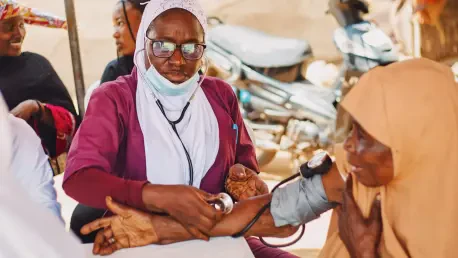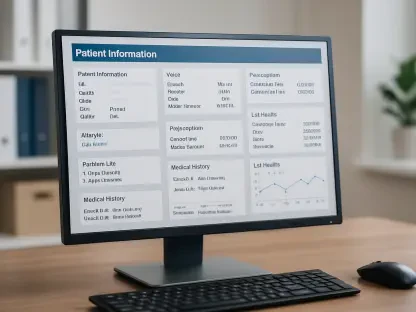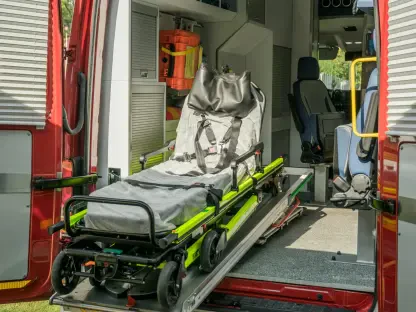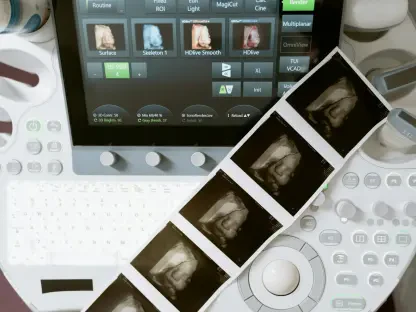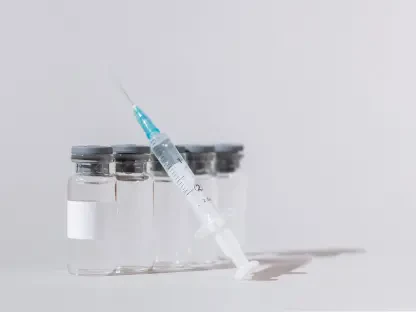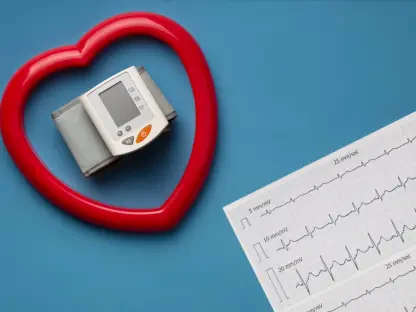In a transformative stride for African healthcare, Nigeria has embarked on a monumental initiative to combat some of the continent’s most pressing health challenges through local innovation, marking a significant step toward self-reliance. A diagnostics factory in Lagos, operated by Codix Bio under Codix Pharma, has begun producing an astonishing 147 million rapid diagnostic test kits targeting HIV, tuberculosis (TB), and malaria. This development, launched earlier this month, emerges as a beacon of hope amid declining foreign aid and persistent supply chain vulnerabilities. With Africa bearing a disproportionate burden of infectious diseases, the reliance on imported medical tools has long hindered effective responses. Now, this pioneering effort signals a shift toward self-reliance, aiming to bridge diagnostic gaps and ensure timely disease management, particularly in underserved regions. The significance of this milestone extends beyond numbers, representing a bold step toward health equity and resilience in the face of systemic challenges.
A Leap Toward Self-Sufficiency in Diagnostics
The launch of this large-scale production in Lagos marks a historic moment for Nigeria and the broader African continent, addressing a critical need for accessible diagnostics. With 70% of materials sourced locally, Codix Bio’s initiative not only reduces dependency on foreign supply chains but also fosters economic growth within the region. Plans are in place to scale up to 100% local content by 2030 through strategic partnerships and technology transfers. This approach is vital in a landscape where disruptions in global supplies have often left health systems stranded. The kits, designed for ease of use, require no advanced laboratory equipment or stable electricity, making them a practical solution for remote and rural communities. By enabling rapid testing, the initiative promises to accelerate interventions for HIV, TB, and malaria, diseases that continue to claim countless lives due to delayed diagnoses.
Beyond accessibility, this project underscores a growing movement across Africa to prioritize local solutions over imported aid. The facility stands as the first of its kind on the continent to manufacture diagnostic kits at such an unprecedented scale. This achievement comes at a crucial time when cuts in international funding, such as reductions in USAID support for Nigeria’s HIV/AIDS programs, have exposed the fragility of donor-dependent health systems. By producing these kits domestically, Nigeria is not only tackling immediate shortages but also building a foundation for long-term health security. The ripple effects could inspire similar efforts in neighboring countries, potentially transforming the regional approach to disease management and pandemic preparedness.
Ensuring Quality and Affordability in Local Production
A key pillar of this initiative is the commitment to maintaining high standards while keeping costs low, a balance that is critical for widespread adoption. Codix Pharma’s Chief Operating Officer, Mary Ogangwu, has emphasized the rigorous training and ISO certification processes that underpin the production of these test kits. This dedication to quality aims to build trust in “Made in Africa” health products, challenging any preconceived notions about inferior standards. Furthermore, as the first African partner in the WHO Health Technology Access Pool program, Codix Bio is positioned to promote equitable access to essential medical tools. The affordability of these kits could significantly reduce the financial burden on patients and health systems, many of whom rely heavily on out-of-pocket payments in the absence of robust public funding.
Expanding on this, the focus on cost-effectiveness aligns with broader regional trends toward localized healthcare solutions. The success of similar efforts, like Senegal’s diaTROPIX facility for COVID-19 and tropical disease diagnostics, highlights a growing recognition of the value in homegrown innovation. In Nigeria, where health spending constitutes just 5% of the federal budget—well below the 15% target set by the Abuja Declaration—affordable diagnostics can play a pivotal role in stretching limited resources. The emphasis on quality assurance ensures that these kits are not just cheaper alternatives but reliable tools for accurate disease detection. This dual focus could pave the way for greater public and governmental confidence in locally produced medical supplies, fostering a sustainable market for African manufacturers.
Overcoming Challenges with Government and Regional Support
Sustaining this ambitious manufacturing effort requires more than just innovation; it demands systemic support and policy alignment from African governments. Ogangwu has called for commitments to procure at least 60% of test kits locally, ensuring their integration into public hospitals and underserved areas. Drawing inspiration from Algeria’s model of banning certain pharmaceutical imports to bolster domestic production, such interventions could create a viable market for local manufacturers. Without guaranteed demand, initiatives like Codix Bio’s risk faltering despite their potential. Additionally, the removal of trade barriers within Africa is seen as essential to building a cohesive manufacturing ecosystem, allowing for the free flow of goods and expertise across borders to meet continental needs.
Another layer of complexity lies in addressing funding constraints and capacity-building gaps that hinder long-term success. While the current production targets are impressive, scaling up to meet the full spectrum of demand requires sustained investment and training. Collaborations with technology transfer partners offer a promising avenue, with plans to increase local content to 90% by 2027. However, experts like virologist Oyewale Tomori argue that African nations must shed a dependency mindset and leverage their resources effectively. Nigeria, often labeled as resource-limited, possesses the potential to lead by example through strategic health budget allocations. Strengthening intra-African trade and governmental procurement policies could transform this initiative from a singular achievement into a catalyst for continent-wide health system reform.
Building a Resilient Future for African Healthcare
Reflecting on this landmark development, it’s evident that Nigeria’s production of 147 million diagnostic test kits represents a turning point in the fight against infectious diseases. This endeavor tackles critical shortages worsened by diminishing foreign aid, positioning local manufacturing as a viable solution to longstanding vulnerabilities. It also aligns with a broader regional push toward self-reliance, as seen in parallel efforts across the continent. The collaboration between industry leaders and policymakers highlights the importance of trust in African-made products, proving that quality and affordability can go hand in hand.
Looking ahead, the focus shifts to actionable strategies for sustaining this momentum. Governments across Africa are encouraged to prioritize local procurement and eliminate trade barriers to support a thriving regional market. Investments in capacity building and technology transfers emerge as critical steps to scale production while maintaining high standards. This initiative, though a significant milestone, serves as a reminder that systemic barriers require ongoing attention to ensure lasting impact. By fostering partnerships and policy support, the vision of a self-sufficient African healthcare landscape moves closer to reality, promising enhanced resilience against future health crises.
